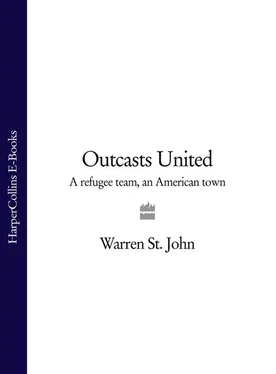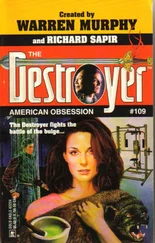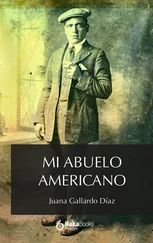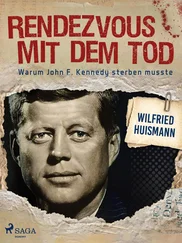For now, though, let’s begin the story amid the nineteen hills of the ancient city of Amman, Jordan, where Luma Mufleh grew up and where she learned to love a game that would create so much joy and cause so much trouble years later in a little town in Georgia, half a world away.
Part One CHANGES
The name Luma means “dark lips,” though Hassan and Sawsan al-Mufleh chose it for their first child less because of the shade of her lips than because they liked the sound of the name—short, endearing, and cheerful—in the context of both Arabic and English. The al-Muflehs were a wealthy, Westernized family in Amman, Jordan, a teeming city of two million, set among nineteen hills and cooled by a swirl of dry desert breezes. The family made its fortune primarily from making rebar—the metal rods used to strengthen concrete—which it sold across Jordan. Hassan had attended a Quaker school in Lebanon, and then college in the United States at the State University of New York in Oswego—“the same college as Jerry Seinfeld,” he liked to tell people.
Luma’s mother, Sawsan, was emotional and direct, and there was never any doubt about her mood or feelings. Luma, though, took after her father, Hassan, a man who mixed unassailable toughness with a capacity to detach, a combination that seemed designed to keep his emotions hidden for fear of revealing weakness.
“My sister and my dad don’t like people going into them and knowing who they are,” said Inam al-Mufleh, Luma’s younger sister by eleven years and now a researcher for the Jordanian army in Amman. “Luma’s very sensitive but she never shows it. She doesn’t want anyone to know where her soft spot is.”
As a child, Luma was doted on by her family, sometimes to an extraordinary degree. At the age of three, Luma idly mentioned to her grandmother that she thought her grandparents’ new Mercedes 450 SL was “beautiful.” The next day, the grandparents’ driver showed up at Hassan and Sawsan al-Mufleh’s home with a gift: a set of keys to the Mercedes, which, they were told, now belonged to their three-year-old daughter.
Hassan too doted on his eldest child. He had high expectations for her, and imagined her growing up to fulfill the prescribed role of a woman in a prominent Jordanian family. He expected her to marry, to stay close to home, and to honor her family.
From the time Luma was just a young girl, adults around her began to note her quiet confidence, which was so pronounced that her parents occasionally found themselves at a loss.
“When we would go to the PTA meetings,” Hassan recalled, “they’d ask me, ‘Why are you asking about Luma? She doesn’t need your help.’”
Sometimes, Luma’s parents found themselves striving to please their confident daughter, rather than the other way around. Hassan recalled that on a family vacation to Spain when Luma was ten or eleven years old, he had ordered a glass of sangria over dinner, in violation of the Muslim prohibition against drinking alcohol. When the drink arrived, Luma began to sob uncontrollably.
“She said, ‘I love my father too much—I don’t want him to go to hell,’” Hassan recalled. He asked the waitress to take the sangria away.
“I didn’t drink after that,” he said.
Luma encouraged—or perhaps demanded—that her younger sister, Inam, cultivate self-sufficiency, often against Inam’s own instincts or wishes.
“She was a tough older sister—very tough love,” Inam said. “She would make me do things that I didn’t want to do. She never wanted me to take the easy way out. And she wouldn’t accept me crying.”
Inam said that she has a particularly vivid memory of her older sister’s tough love in action. The al-Muflehs had gathered with their cousins, as they often did on weekends, at the family farm in a rural area called Mahes, half an hour from Amman. Inam, who was just seven or eight at the time, said that Luma took her and a group of young cousins out to a dirt road to get some exercise. The kids set off jogging, with Luma trailing them in the family Range Rover. It was hot and dry and hilly, and one by one, the kids began to complain. But Luma wouldn’t have any of it. She insisted that they keep running.
“She was in the car, and we were running like crazy,” Inam recalled. “Everyone was crying. And if I would cry, she would just look at me.”
That withering look, which Luma would perfect over the years, had the stinging effect of a riding crop. Despite the pain, little Inam kept running.
Luma’s drill-sergeant routine at Mahes became a kind of family legend, recalled to rib Hassan and Sawsan’s firstborn for her tough exterior. The family knew another side of Luma—one that others rarely encountered—that of a sensitive, even sentimental young woman with a deep concern for those she perceived to be weak or defenseless. Luma laughed along with everyone else. She enjoyed a good joke and a well-earned teasing, even at her own expense. But jokes aside, Luma’s tough love had its intended effect.
“I wanted to prove to my sister that I could do anything,” she said. “I always remember that my sister pushed me and I found out I was able to do it.”
THE AL-MUFLEHS WERE intent on raising their children with their same cosmopolitan values. They sent Luma to the American Community School in Amman, a school for the children of American expatriates, mostly diplomats and businessmen, and elite Jordanians, including the children of King Hussein and Queen Noor. Luma learned to speak English without an accent—she now speaks like a midwesterner—and met kids from the United States and Europe, as well as the children of diplomats from all over the world.
Luma’s childhood was idyllic by most measures, and certainly by comparison to those of most in Jordan. She went to the best school in Amman and lived at a comfortable distance from the problems of that city, including poverty and the tensions brought on by the influx of Palestinian and later Iraqi refugees. But her maternal grandmother, Munawar, made a point of acknowledging and aiding the poor whenever she could. Beggars regularly knocked on her door because they knew that on principle she would always give them alms. And when relatives would tell her she was being taken advantage of because of her generosity, Munawar would brush them off.
“She would say we had an obligation because we were so privileged,” Luma recalled. “And she would say, ‘God judges them, not us.’”
Munawar’s home abutted a lot in Amman where young men played football in the afternoons. As a kid, Luma would climb a grapevine on the concrete wall behind the house and watch the men play. She eventually got the nerve to join in, and she would play until her grandmother saw her and ordered her inside on the grounds that it was improper for a young woman to be around strange men.
“She would have a fit if she saw me playing football with men,” Luma said. “And then she’d say, ‘We are not going to tell your father about this.’”
At the American Community School, Luma was free from the strictures of a conservative Muslim society and at liberty to play sport as boys did. She played basketball, volleyball, football, and baseball with the same intensity, and stood out to her coaches, particularly an African American woman named Rhonda Brown.
“She was keen to learn,” Brown said. “And no matter what you asked her to do, she did it without questioning why.”
Brown, the wife of an American diplomat at the U.S. embassy in Amman, coached volleyball. She had played volleyball in college at Miami University in Ohio and, when she found herself bored in the role of a diplomat’s wife, had volunteered to coach the women’s varsity volleyball team at the ACS. When she showed up to coach, Brown said, she was disappointed at what she found.
Читать дальше












